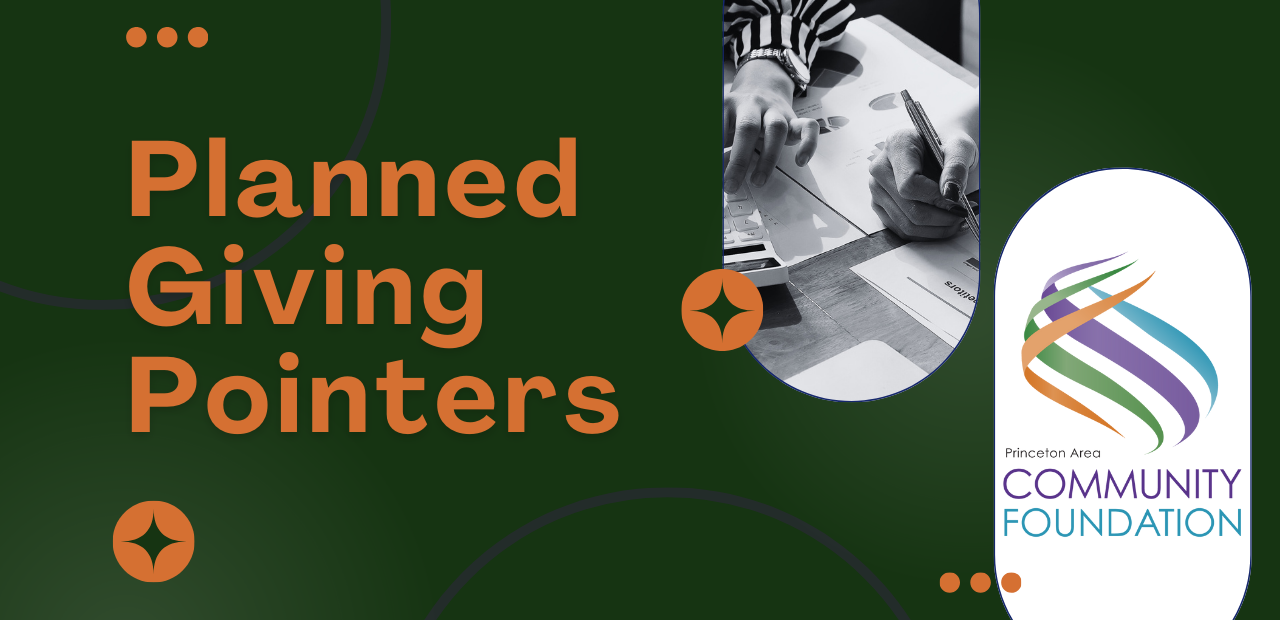What is Planned Giving?
If you’ve chatted with professionals working at your favorite nonprofits, you’ve likely heard the term “planned giving.” You might have wondered what it means, even if you’ve already structured so-called “planned gifts” to support your favorite charities!
Here are a few pointers to help break down the concept of planned giving, along with ways the community foundation can help you achieve your charitable goals.
Think of “planned giving” in contrast to what’s sometimes called “current” or “annual” giving. When you write a check (or, ideally, give highly-appreciated stock) to a charitable organization such as your fund at the community foundation, you’re transferring those funds right away in a relatively straightforward manner. You might also make annual gifts to several charities or contribute to a charity’s endowment at the Community Foundation.
Common Types of Planned Gifts
In contrast, a “planned gift” involves structured future transfers to charity. These gifts require planning and often come in various forms:
- A bequest in your will or trust allows you to name a charity, such as your fund at the community foundation, to receive a certain dollar amount, or a percentage of your estate, following your death. The team at the community foundation can work with you and your advisors to include a bequest in your estate plan using the proper bequest language.
- Beneficiary designations on life insurance policies, and especially on retirement plans, can be effective tools for making bequests. The team at the community foundation can work with you and your advisors to complete the paperwork required to properly designate your fund at the community foundation as the beneficiary of life insurance or IRA assets, including reviewing with you the many tax benefits of using retirement plans to fund your bequests.
- Setting up a charitable trust, such a charitable remainder trust, is often an effective way for you to ensure that money will flow from your estate to a charity, such as your fund at the community foundation, in a way that meets both your philanthropic intentions and your financial goals (including retaining an income stream and triggering an up-front charitable income tax deduction). A charitable gift annuity is another type of “split interest” arrangement, whereby you can retain an income stream and designate a charitable beneficiary to receive a future gift. Charitable trusts are complex, and we’re here to walk you and your advisors through the process every step of the way.
Contact Us
For more information, contact Steven Spinner, at sspinner@pacf.org or Gabrielle Markand, at gmarkand@pacf.org. We’d love to work with you to set up planned gifts to support your favorite causes, as well as work together to ensure that you’ll meet your charitable goals for current giving in 2024.






